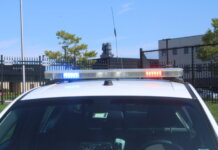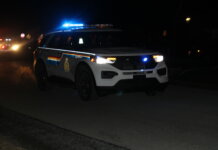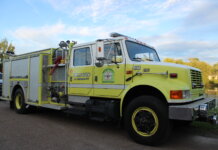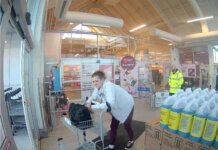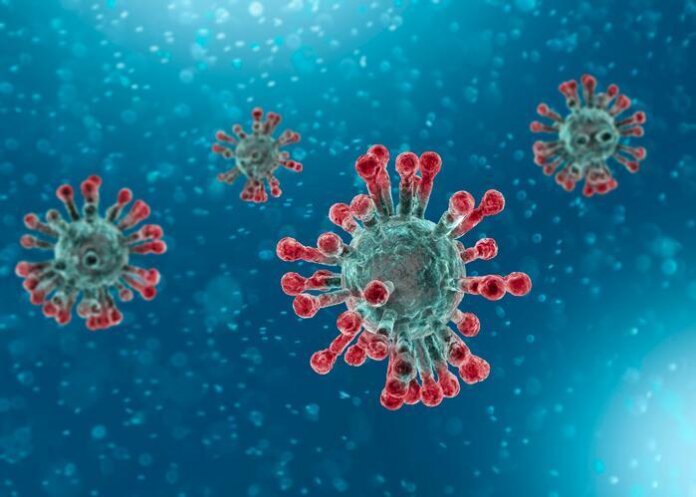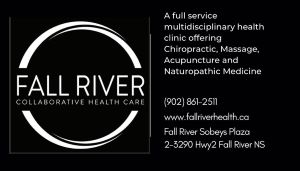HALIFAX: As of today, Dec. 10, Nova Scotia has 64 active cases of COVID-19. Four new cases are being reported today. The new active cases number means there were 11 recoveries since Dec. 9’s update.
One case is in Eastern Zone and is related to travel outside of Atlantic Canada. The person has been self-isolating as required.
Three of the cases are in Central Zone. One is a close contact of a previously reported case. One case is under investigation.
The other case is connected to Tallahassee Community School, a pre-primary to grade 3 school in Eastern Passage.
The person was not in school today and is self-isolating. The school will close to allow for deep cleaning, testing and contact tracing, and is expected to reopen to students on Wednesday, Dec. 16. Students will learn from home during the closure and families of the school will receive an update on Tuesday, Dec. 15.
As with any positive case, public health will be in touch with any close contacts of this case and advise of next steps. Everyone who is a close contact will be notified, tested and asked to self-isolate for 14 days.
“Seeing lower case numbers is good news, but it does not mean we can let our guard down,” said Premier Stephen McNeil. “We know how fast this virus can move. We have worked so hard to contain it – let’s not falter as we get closer to the vaccine being available. We need to continue to be kind to one another, support one another and recognize that when we follow public health protocols, we are actually protecting each other.”
Nova Scotia Health Authority’s labs completed 1,788 Nova Scotia tests on Dec. 9.
Nova Scotia will report rapid-testing pop-up numbers weekly, starting this Friday.
Since Oct. 1, Nova Scotia has completed 81,706 tests. There have been 304 positive COVID-19 cases and no deaths. No one is currently in hospital. Cases range in age from under 10 to over 80. Two hundred and forty cases are now resolved. Cumulative cases may change as data is updated in Panorama.
“Today marks the sixth consecutive day where our case numbers are below 10,” said Dr. Robert Strang, Nova Scotia’s chief medical officer of health. “Just because our case numbers are low does not mean we can become complacent. I am urging Nova Scotians to continue to follow all the public health measures.”
Visit https://covid-self-assessment.novascotia.ca/ to do a self-assessment if in the past 48 hours you have had or you are currently experiencing:
— fever (i.e. chills/sweats) or cough (new or worsening)
Or:
Two or more of the following symptoms (new or worsening):
— sore throat
— runny nose/nasal congestion
— headache
— shortness of breath/difficulty breathing
Call 811 if you cannot access the online self-assessment or wish to speak with a nurse about your symptoms.
When a new case of COVID-19 is confirmed, public health works to identify and test people who may have come in close contact with that person. Those individuals who have been confirmed are being directed to self-isolate at home, away from the public, for 14 days.
Anyone who has travelled outside of Atlantic Canada must self-isolate for 14 days. As always, any Nova Scotian who develops symptoms of acute respiratory illness should limit their contact with others until they feel better.
It remains important for Nova Scotians to strictly adhere to the public health order and directives – practise good hand washing and other hygiene steps, maintain a physical distance when and where required. Wearing a non-medical mask is mandatory in most indoor public places.
Rules concerning interprovincial travel within Nova Scotia, New Brunswick, Prince Edward Island and Newfoundland and Labrador have changed. The premiers of all four Atlantic provinces are cautioning against non-essential travel into neighbouring provinces. Currently, all non-essential travel into Prince Edward Island, New Brunswick and Newfoundland and Labrador requires a 14-day self-isolation. All public health directives of each province must be followed. Under Nova Scotia’s Health Protection Act order, visitors from outside Atlantic Canada must self-isolate for 14 days unless they completed their self-isolation in another Atlantic province.
Nova Scotians can find accurate, up-to-date information, handwashing posters and fact sheets at https://novascotia.ca/coronavirus .
Businesses and other organizations can find information to help them safely reopen at https://novascotia.ca/reopening-nova-scotia .
Quick Facts:
— testing numbers are updated daily at https://novascotia.ca/coronavirus
— a state of emergency was declared under the Emergency Management Act on March 22 and extended to Dec. 13
— online booking for COVID-19 testing appointments is available for Nova Scotians getting a test at all primary assessment centres or at the IWK Health Centre in Halifax
Additional Resources:
Government of Canada: https://canada.ca/coronavirus
Government of Canada information line 1-833-784-4397 (toll-free)
The Mental Health Provincial Crisis Line is available 24/7 to anyone experiencing a mental health or addictions crisis, or someone concerned about them, by calling 1-888-429-8167 (toll-free)
Kids Help Phone is available 24/7 by calling 1-800-668-6868 (toll-free)
For help or information about domestic violence 24/7, call 1-855-225-0220 (toll-free)
For more information about COVID-19 testing and online booking, visit https://novascotia.ca/coronavirus/symptoms-and-testing/
The COVID-19 self-assessment is at https://covid-self-assessment.novascotia.ca/


